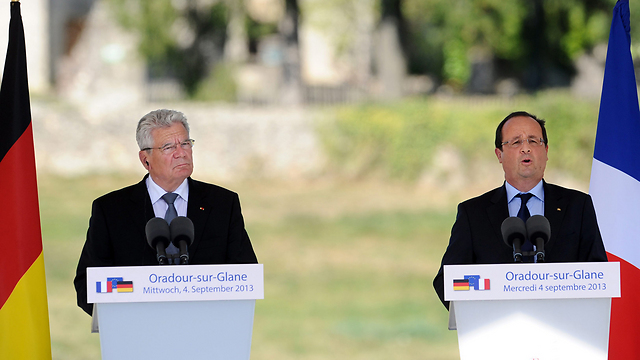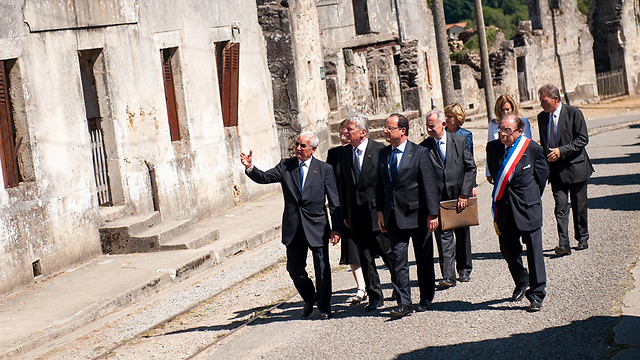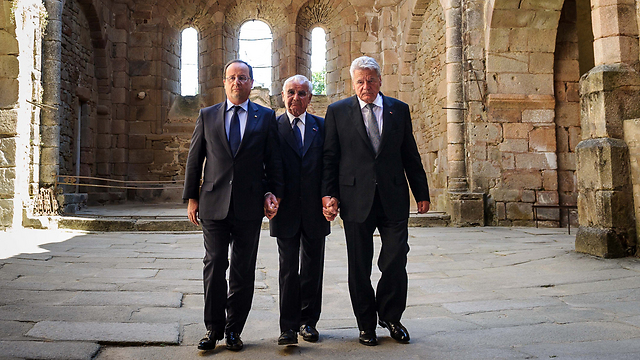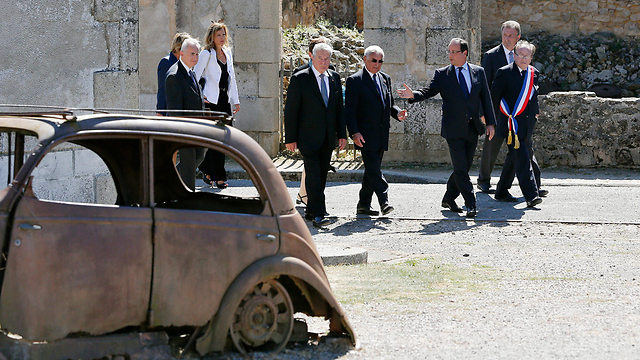Residents of the village of Oradour-sur-Glane, near Limoges, were massacred by the SS on June 10, 1944, as all the homes and businesses were in town were destroyed.
Related stories:
- Germany renews probe into WWII Nazi massacre
- SS troops may face massacre trial in Germany
- Germany opens memorial to Nazis' Gypsy victims
Two of the remaining three survivors of the 1944 massacre in Oradour-sur-Glane – Robert Hebras, 88, and Jean-Marcel Darthout – accompanied the two presidents.
Joachim Gauck, Francois Hollande (Photo: EPA)
Photo: MCT
Photo: AP
Hebras, who was 19 at the time of the massacre, survived by hiding under the corpses of others who were machine-gunned. He said that had the German president visited the village earlier, it "would have been too soon. But now we must reconcile with the Germans."
For many years the relatives of victims had opposed any homage to Oradour by a German leader
According to the Daily Mail, Gauck, who is the only German leader ever to visit the village, said he felt a "mixture of gratitude and humility" as he visited the site, where the burned out homes remain exactly as they were on the day they were torched.
"The Germany that I have the honor of representing is a different Germany from the one that haunts memories," Gauck added, to which Hollande responded by honoring his German's counterpart's choice to visit the village.
German soldiers killed all 642 residents of the village, including children. The men were rounded up and shot in barns, the women were herded into the local church which was set ablaze with hand grenades
The French and German presidents visited the village square where residents were rounded up.
It is thought Oradour was destroyed because of resistance attacks on the Das Reich division as it moved north, or because massive amounts of gold was stolen from Das Reich officers, and the officers believed the peasants of the village had it, therefore attacking the village.
A military tribunal opened in Bordeaux in 1953 to try the surviving 65 of the approximately 200 soldiers involved.
However, many could not be extradited from the new East Germany, and 14 of them were Alsatians – French nationals of German extraction. Twenty were found guilty, but were all released from prison within five years.
- Receive Ynetnews updates
directly to your desktop



















